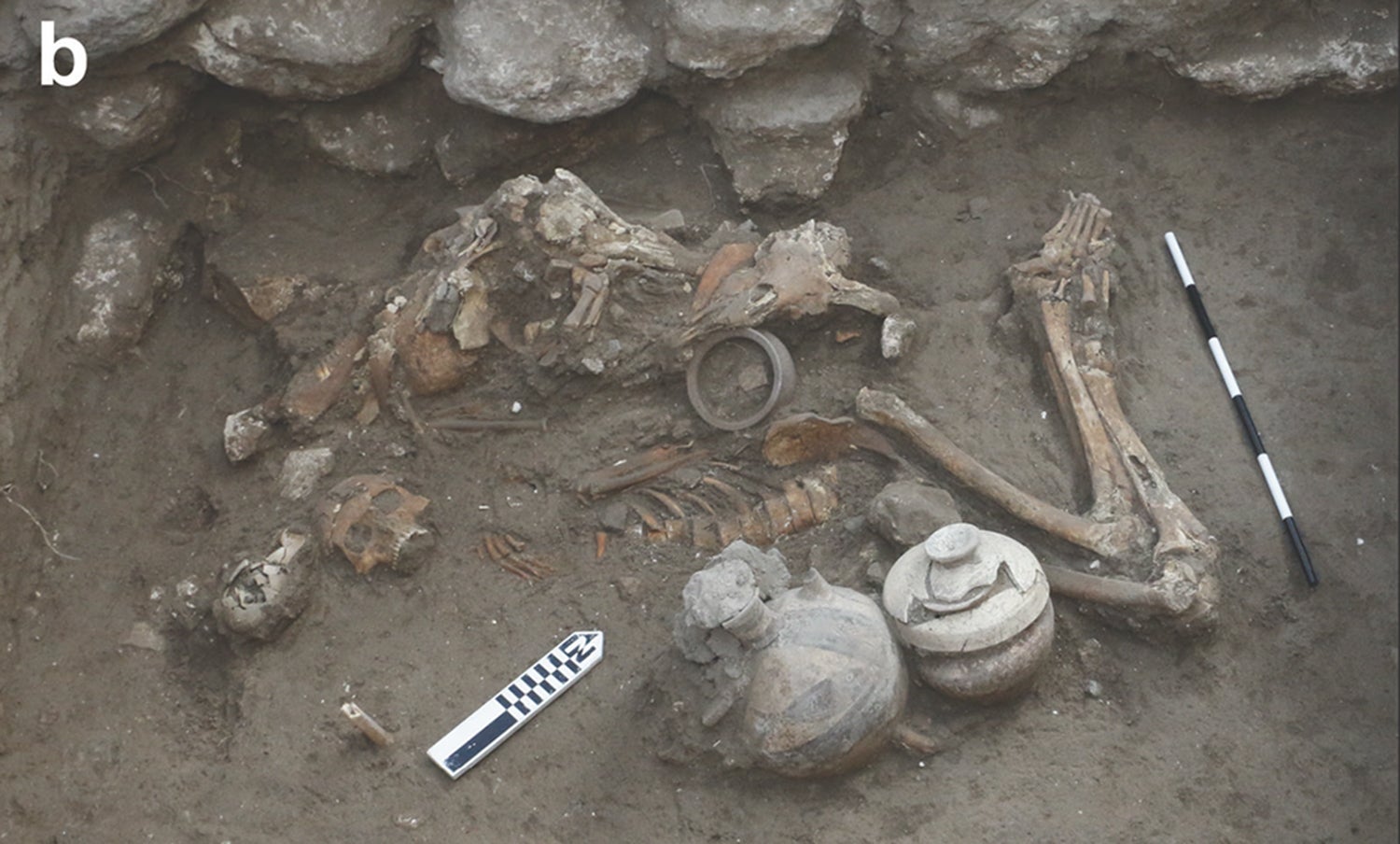
Archaeologists have discovered the grave of two Bronze Age brothers who lived during 15th century BC in Israel – and incredibly, one of them appears to have had an early form of brain surgery before he died.
The remains were found during a tomb excavation in Tel Megiddo, and the findings mark the earliest known example of trephination – a type of cranial surgery – found in the ancient Near East.
The men, determined to be brothers during a previous ancient DNA study, lived during the Bronze Age between 1550 BC and 1450 BC.
The older brother is estimated to have been between the age of 21-46, while the younger brother was estimated to be a young adult either in his late teens or early 20s.
The body of the older brother showed evidence of the brain surgery with his scalp cut and a sharp, bevelled-edge instrument used to make four intersecting lines on the frontal bone of the skull – making a 1.2-inch square-shaped hole.

Skull pieces that were removed during the surgery were found in the man’s grave, along with Cypriot pottery, food and other valuable possessions.
Researchers believe the brothers were elite members of society and perhaps even royals due to the tomb being found in close proximity to a late Bronze Age palace.
The study, which was published on Wednesday (22 February) in a journal, also found that both men had been severely unwell in life, with their skeletons showing signs of disease and lesions, suggesting chronic conditions.
However, it is unclear why the older brother required the brain surgery, though the practice was used to relieve pressure in the skull or treat symptoms of epilepsy and sinusitis.
He is believed to have died within days or hours of the surgery, based on the lack of bone healing.







